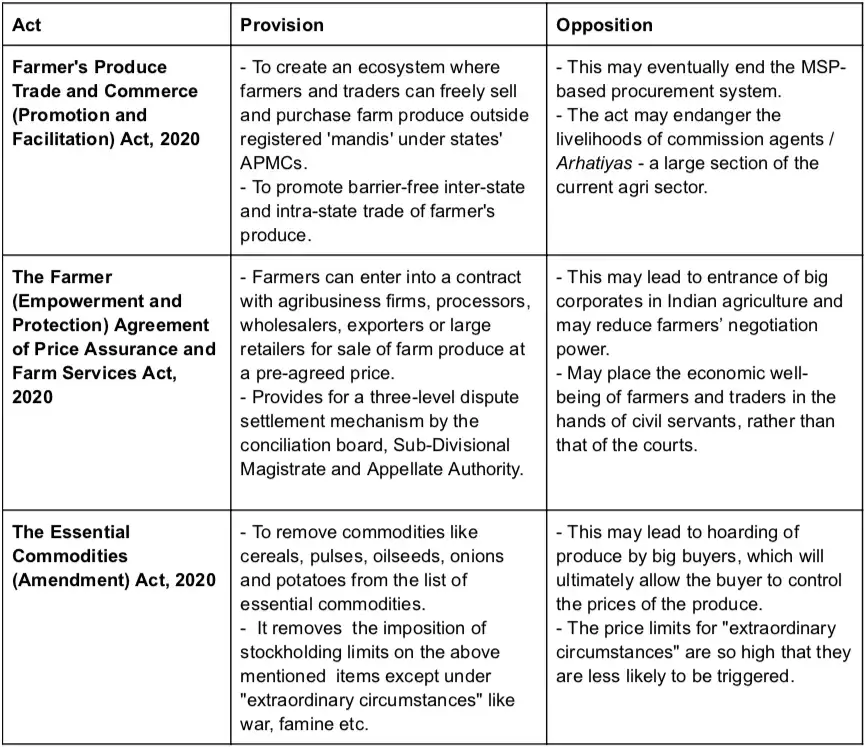
The recent farm bills turned Acts have stirred a fiery discourse on the agricultural supply chain, fair pricing and the livelihood of 146 million farmers in India. While the role of APMC mandis, middlemen like ‘Arhatiyas’ (commission agents) and big corporate buyers are being debated at length, attention on agri startups and the impact of these Acts on Agritechs has been sparse.
The significance of rapidly growing Agritechs in developing the agriculture sector and changing the lives of farmers in India can’t be ignored. As per NASSCOM’s report ‘Agritech In India — Emerging Trends in 2019’, there are more than 450 Agritech startups in India; these startups have received more than $248 million in funding in 2019. Agritech startups are solving some of the most critical and challenging problems of the sector including supply chain inefficiencies, weak market linkages, information and data gaps, dependable access to inputs and financing.
Before we dive into how the Farm Acts will impact Agritechs, let us take a quick glance at their key provisions and the primary grounds for opposition.
The Farm Acts at a glance

‘Long awaited’ reform for Agritechs?
Largely there is consensus among Agritech startups about a positive impact of these Acts on the farmers as well as the entire value chain. We spoke to entrepreneurs and sector experts; terms like ‘long-awaited’, ‘farming on merit’ and ‘good in the long run’ especially stood out. As Kishor Kumar Jha, CEO and Director from The Ergos Grainbank, puts it, “The Acts have been long awaited, as there were lots of underlying currents. The market needs to be openly, efficiently managed, rather than going through regulatory obligations which are fragmented and decentralized.”
Shashank Kumar, Founder & CEO at DeHaat, believes that the Acts should be seen from a holistic perspective and not just in silos. “The positive aspect is that they have tried to make contract farming farmer-friendly,” he says. “India is a country where post harvest loss is at 40% because of multiple players of mandi, and lack of infrastructure. If a corporate or individual trader wants to invest in cold chain and infrastructure, then why would it invest if ultimately the buying can only be done through mandi? The new reforms will act as an incentive for significant value addition across the supply chain.”
Here is a brief analysis of how each of the Acts is expected to boost startup prospects, along with some safeguards for farmers which are missing currently.

Another positive impact expected in the long term will be value addition across the supply chain by existing intermediaries or Arhatiyas. Market forces may nudge this player of the value chain to alter its offerings to continue to stay relevant in the changed order of business.
Even though the Acts do talk about the dispute settlement mechanism, taking the redressal mechanism out of the ambit of the judiciary and putting it in the hands of bureaucrats may be a serious concern. While this provision may help assuage concerns of case-load and choked legal infrastructure, keeping the interests of small-holder farmers in mind, this provision may need a re-look. As Shashank asserts, “The fear of farmers getting exploited is a genuine one. Today, farmers are at least assured that if something goes wrong at mandi, there is a mandi board to help them, to sort out, to resolve the matter or dispute. If the buying happens outside the mandi, who will hear them out? I think this is a provision which is not there in the current Act, and something where an amendment is very much needed.”
Overall, Agritechs seem to be enthusiastic about the Acts, if implemented efficiently. These Acts are expected to facilitate more innovation and entrepreneurship in the agriculture sector. Agriculture has traditionally been one of the longest protected sectors of the economy. The opening of passages for private sector participation may unpack some efficiencies. This may also put in motion a major development in the farm infrastructure. However, as a country of over 90% small-holder farmers, we must pay close attention to curbing potential exploitation of those that have remained at the fringes. Many driven Agritechs are building solutions for these farmers; supportive policy would multiply their impact manifold.
References:
http://egazette.nic.in/WriteReadData/2020/222039.pdf
https://images.assettype.com/barandbench/2020-09/0f5e7d7c-4406-4b5c-9f7d-6f4e538b3610/Farmers__Empowerment___Protection__Agreement_on_Price_Assurance___Farm_Services_Act__2020.pdf
https://images.assettype.com/barandbench/2020-09/0bb86118-fe26-4130-b3b1-11d15688fcee/Essential_Commodities.pdf
